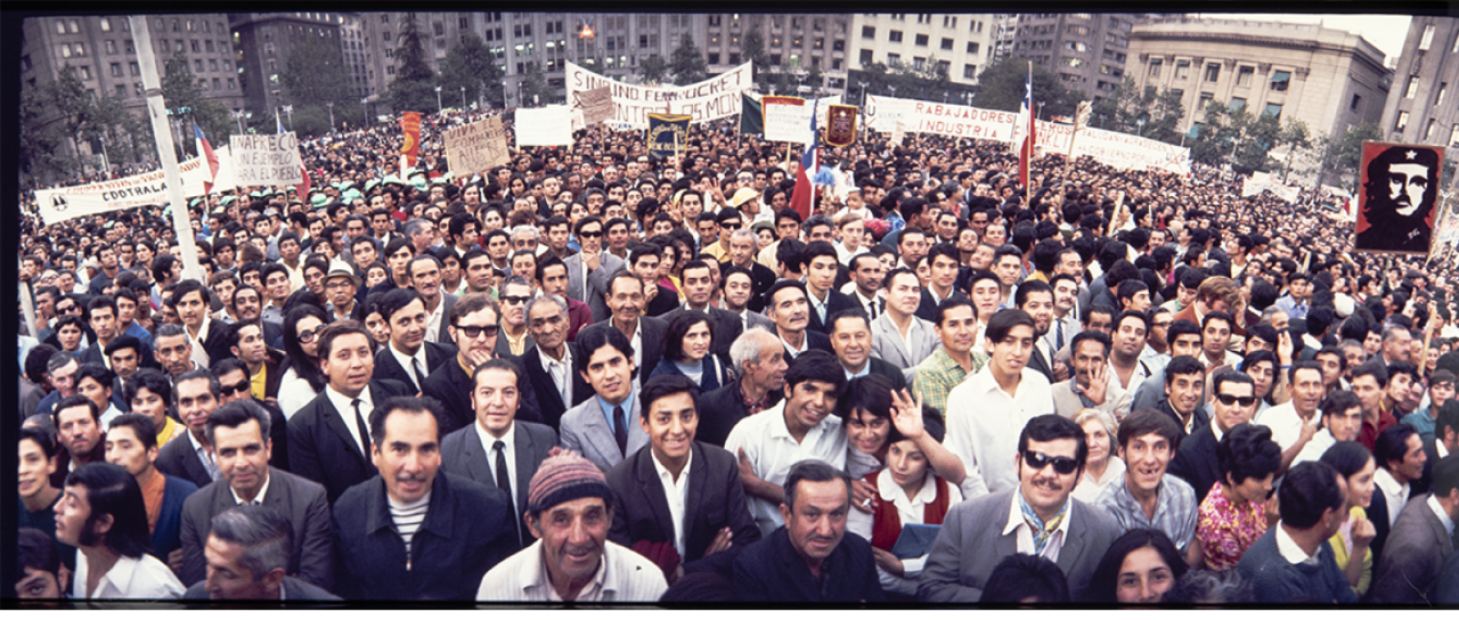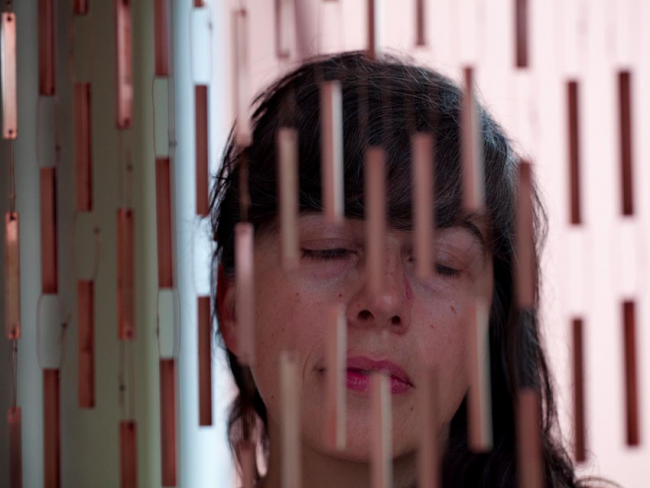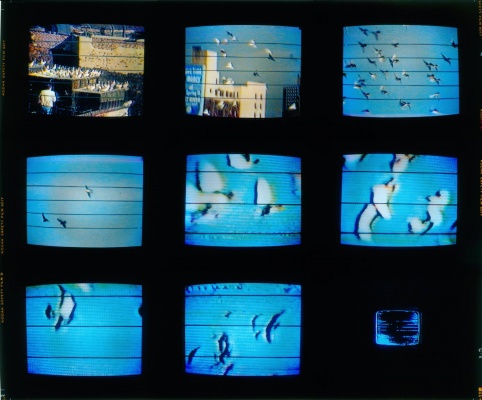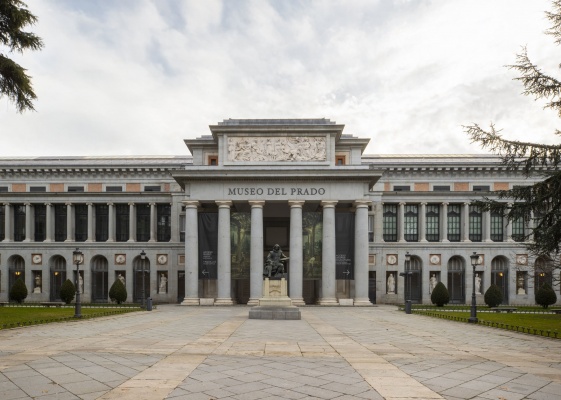Galerías y otras organizaciones que le representan
Organizaciones con obra
Profesionales con obra
Descripción del Artista
Hulda Guzmán, nacida en Santo Domingo en 1984, es una de las jóvenes artistas de vanguardia de más empuje en el escena actual, con un oficio desbordante, su obra transgresora, dueña de una irreverencia solo superada por su propia originalidad.
Estudió Bellas Artes e ilustración en la Escuela de Diseño Altos de Chavón, (Rep. Dominicana) afiliada a Parsons, School of Design. (New York 2002-2004)
Beca para estudios de Licenciatura en Parsons, School of Design, New York 2004 – 2006
Licenciatura en Artes Visuales en la Escuela Nacional de Artes Plásticas (ENAP)
Especialidad en Pintura Mural y Fotografía, Mexico D.F.
Ha sido reconocida con el "Premio en Pintura" “25 Bienal Nacional de Artes Visuales 2009″, Museo de Arte Moderno, Santo Domingo, Rep, Dom,
"Premio en Pintura" Concurso Leon Jimenes, entre otros.
Ha participado en diferentes exposiciones tanto individuales como colectivas en Santo Domingo, Miami, New York, Seùl, Guatemala, Los Angeles.
Sus obras se encuentra en las colecciones permanentes del
Centro León Jimenes, Santiago. Fundación Casa Cortés, Viejo San Juan, Puerto Rico, Colección Antonio Murzi, Panamá, así como en importantes colecciones privadas en República Dominicana, China, España, Francia, Italía y Estados Unidos.
STATEMENT
I am interested in achieving what I consider a challenge for the medium of painting: to recount an event in a bi-dimensional space that lacks the help of narrative discourses like the ones in cinema. This makes me want to translate the concepts of temporality and storytelling to the painted image. How to understand the notion of time or narrative in painting? How to tell stories in a medium that is essentially spatial and that at first sight lacks the necessary components for every story? Firstly, the narrative is constructed on two essential axes: description (detecting the action to indicate the elements in question and their spatial location), and narration (it consists of the representation of actions or happenings, events… etc.) it deals with the transformations of what’s described). We have the case of those images that suggest in their own immobility a whole time course, that happens thanks to the tensions of the used plastic elements (composition, direction, rhythm, etc.) or by the depicted scene (the characters’ expressions, objects that take us to different moments in the story… etc.). Since the origins of figurative painting, and at least until the late Renaissance, we express ourselves through a story. Leon Battista Alberti’s theory about painting defined history as the main painter. Narrative painting takes such importance that, in 1620, Vicenzo Giustiniani established, in the first official appearance of the autonomous “genres” with respect to narration, different ranks for the topics of paintings, with the highest one being historic themes, while portraits, landscapes, still life, and so on were valued as secondary. As a consequence of this, the fact that a painting is “still” and “has no time”, and yet is compelled to transmit certain narrative, establishes a problem that painters have exercised for centuries, proposing new solutions and adapting them to the material possibilities of work. Another big influence for me with regards to narrative and painting are the Mexican altarpieces and exvotos. These small devout paintings in the form of a short story, dedicated to a particular saint as thanks for a miracle, generally consist of three elements: pictorial representation of the event, narrative, and the portrait of the saint. Because it’s especially an example of popular or folk art, what interests me is to give evidence of the naivety of the treatment, which I actually believe represents an attribute that contributes a lot to the narrative, because simple minds resort to symbolisms and simplifications, synthetizations that make the transmission of the message easier.
BIO
Hulda Guzmán studied visual arts and illustration at Altos de Chavón School of Design in the Dominican Republic. She also holds a degree in visual arts from the National School of Visual Arts, Mexico, specializing in photography and mural painting.
She has participated in individual and group exhibitions in Santo Domingo, Miami, New York, Seoul, Guatemala, and Los Angeles; most recently in solo projects at ARCOMadrid in February 2015, as well as solo exhibitions in VOLTA NY in March 2015, and at Galería Machete, Mexico City in June 2015. Other exhibitions include Injoy (2014) at the Lyle O. Reitzel Gallery, Santo Domingo; Under construction (2013), William Road Gallery, London; On common ground (2013), Art Museum of the Americas, Washington, DC; and Power Dominicana and solid friends (2008) at the Miami Art Basel beach, Lyle O. Reitzel Gallery, Miami.
Her works can be found in the permanent collections of Centro León Jimenes (Santiago); Fundación Casa Cortés (Viejo San Juan, Puerto Rico); Antonio Murzi Collection (Panama); and Patricia Phelps de Cisneros Collection, as well as other private collections in the Dominican Republic, China, Spain, France, Italy, and the United States.
In 2015 she was the third artist to participate in the Davidoff Art Initiative art residency in New York.
Hulda Guzmán was born in 1984, Santo Domingo, Dominican Republic. She lives and works between Santo Domingo and the rainforest-covered mountains of Samaná, on the country’s northeast coast.
Guzmán’s paintings are populated by a technicolour cast of humans, animals, anthropomorphic plants and imaginary creatures. Employing distinct architectural locations and spatial tricks such as mise en abîme, her narratives occupy contradictory, dreamlike realities. Characters lounge on ambrosial shores beside derelict flats, join dancefloors that spill into the rainforest and chase demons through chic interiors. Though rooted in Guzmán’s liberal childhood, these wittily painted gatherings also reflect her experiences of the artistic community in Samaná.
Echoing the paradisial fantasies of Henri Rousseau and Paul Gauguin, Guzmán frequently interrogates imagery connected with her Caribbean heritage. The modernist style of her sparse interiors represents “a metaphor for human order,” Cathryn Drake explains in Artforum. It is “a reflection of the commercial exchange of goods around the globe, the most insidious form of colonisation.” These allusions to imperialist history emerge in contrast to the natural landscape, opposing mercenary tendencies with hints of a transcendent perspective.

Actualidad, 11 abr de 2025
A vista de pájaro: las noticias destacadas de la semana
Por REDACCIÓN AI
Esta es la información localizada «a vista de pájaro» por nuestra redacción, misma que ponemos a su disposición.

Mercado, 14 mar de 2022
10 nuevos fichajes, entre ellos, Jonathas de Andrade
Por GUSTAVO PéREZ DIEZ
De Andrade, que representará a Brasil en la próxima Bienal de Venecia, ficha por una de las galerías brasileñas más importantes.

Arte en Datos, 15 may de 2019
¿Quién colecciona a los artistas iberoamericanos de la Bienal de Venecia?
Por GUSTAVO PéREZ DIEZ
Participar en la Bienal de Venecia no es resultado de una lotería. En muchos casos es consecuencia de la acumulación de muchos pequeños éxitos. El haber sido incluido en una ...

Exposición. 08 may de 2025 - 14 sep de 2025 / MNAC - Museu Nacional d'Art de Catalunya / Barcelona, España

Formación. 30 oct de 2025 - 11 jun de 2026 / Museo Nacional del Prado / Madrid, España